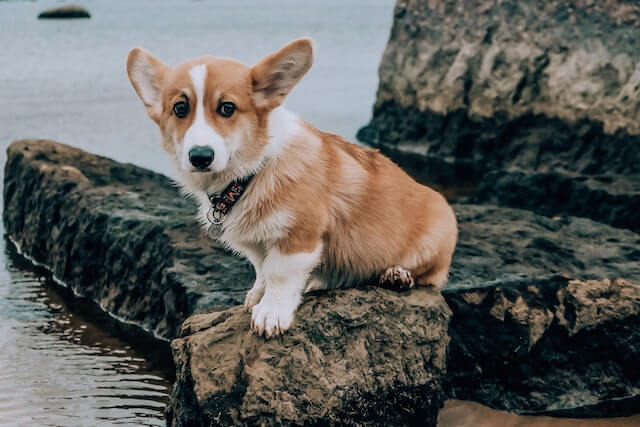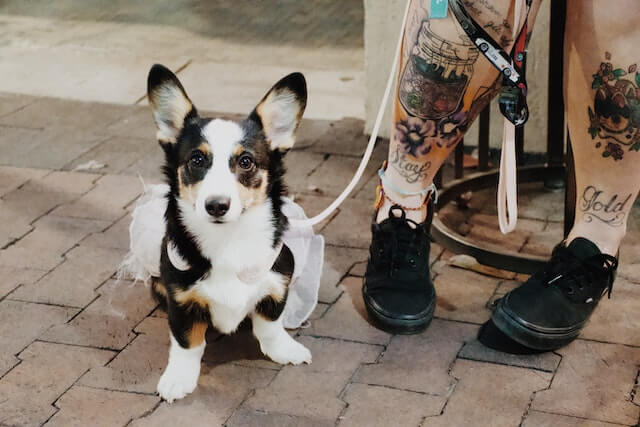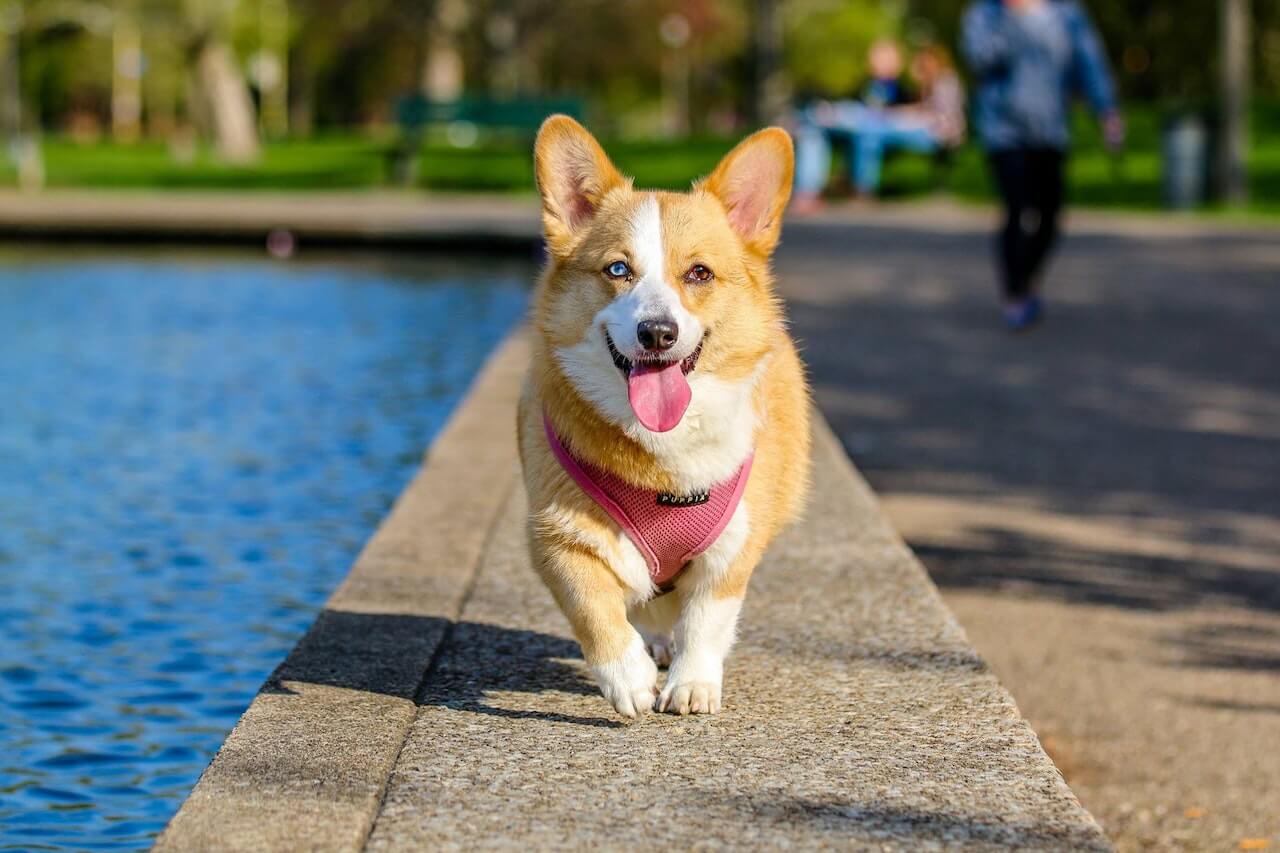Corgis, with their short legs and charming personalities, have become popular pets worldwide, and India is no exception. If you’re considering adding a Corgi to your family, it’s essential to understand the factors that can influence Corgi dog price in India. In this article, we will delve into the various aspects that affect the cost of owning a Corgi in India, along with valuable information about this delightful breed.
Corgi Dog Price in India
The price range of Corgis in India varies significantly depending on several factors. On average, a Corgi dog price in India ranges anywhere between INR 30,000 to INR 90,000. However, it’s important to note that the pedigree, lineage, and quality of the Corgi can heavily influence the price. Show-quality Corgis with exceptional lineage may command a higher price, reaching up to INR 1,00,000 or even more.
Corgi Price In Major Indian Cities:
| Corgi Dog Price In Indian Cities | Different Cities |
| Corgi Dog Price In Delhi | Rs.30 K – Rs. 90 K |
| Corgi dog price In Kolkata | Rs.30 K – Rs. 90 K |
| Corgi Dog Price In Mumbai | Rs.30 K – Rs. 90 K |
| Corgi Dog Price In Chennai | Rs.30 K – Rs. 90 K |
| Corgi Dog Price In Bangalore | Rs.30 K – Rs. 90 K |
| Corgi dog price In Coimbatore | Rs.30 K – Rs. 70 K |
| Corgi dog price In Kerala | Rs.30 K – Rs. 70 K |
| Corgi dog price In Nagpur | Rs.30 K – Rs. 90 K |
| Corgi dog price In Ahmedabad | Rs.30 K – Rs. 90 K |
| Corgi dog price In Lucknow | Rs.30 K – Rs. 66 K |
| Corgi Dog Price In Hyderabad | Rs.30 K – Rs. 90 K |
| Corgi dog price In Pune | Rs.30 K – Rs. 90 K |
| Corgi dog price In Jaipur | Rs.30 K – Rs. 70 K |
| Corgi dog price In Guwahati | Rs.30 K – Rs. 66 K |
| Corgi dog price In Chandigarh | Rs.30 K – Rs. 70 K |
| Corgi dog price In Dehradun | Rs.30 K – Rs. 66 K |
| Corgi dog price In Punjab | Rs.30 K – Rs. 70 K |
Factors Affecting Corgi Price in India
- Pedigree and Lineage: Corgis with well-established pedigrees and champion lineage often come with a higher price tag. These dogs have undergone generations of careful breeding, resulting in desirable physical and behavioral traits.
- Age and Gender: The age and gender of a Corgi can impact its price. Generally, younger puppies tend to be more expensive compared to adult Corgis. Additionally, the demand for females is often higher than males, which may affect their prices.
- Color and Coat: The color and coat quality of a Corgi can also influence its price. While the classic “Pembroke” Corgis with their striking red and white coats are popular, other variations, such as tri-color or sable, may be priced differently due to their rarity.
- Breeder Reputation: Reputable breeders who prioritize the health and well-being of their Corgis often charge higher prices. Their dedication to responsible breeding practices, genetic testing, and proper care for the puppies contributes to the overall cost.
Associated Costs with Corgi Ownership
Owning a Corgi involves more than just the initial purchase price. It’s crucial to consider the various expenses that come along with their care and maintenance. Some of the associated costs with Corgi ownership include:
- Food and Nutrition: Providing high-quality dog food that meets your Corgi’s nutritional needs is essential. Quality dog food brands ensure your Corgi receives the necessary nutrients for optimal health.
- Veterinary Care: Regular check-ups, vaccinations, and preventative treatments are crucial to ensure the well-being of your Corgi. Additionally, unforeseen health issues may arise, requiring additional medical expenses.
- Grooming: Corgis possess a double coat that requires regular brushing to prevent matting and shedding. Professional grooming services may be availed to keep their coats in top condition.
- Training and Socialization: Investing in training classes and socialization opportunities for your Corgi will contribute to their well-rounded development. Training helps establish good behavior and strengthens the bond between you and your furry companion.
- Toys and Accessories: Providing your Corgi with suitable toys, bedding, collars, leashes, and other accessories enhances their comfort and happiness.
Be prepared to spend Rs 40,000 to Rs 55,000 additional to the initial purchase cost annually in owing a Corgi.

Breed Overview
| Characteristic | Corgi (Pembroke Welsh Corgi and Cardigan Welsh Corgi) |
| Size | Small to Medium |
| Weight (Pembroke) | 24-30 pounds (11-14 kg) |
| Weight (Cardigan) | 25-38 pounds (11-17 kg) |
| Height (Pembroke) | 10-12 inches (25-30 cm) at the shoulder |
| Height (Cardigan) | 10.5-12.5 inches (27-32 cm) at the shoulder |
| Corgi Lifespan | 12-15 years |
| Corgi Coat Type | Double coat with a short, dense undercoat and a longer, weather-resistant topcoat |
| Corgi Coat Colors | Various, including red, sable, black, and tan, and tricolor (white with black and tan) |
| Corgi Temperament | Intelligent, Alert, Affectionate, Energetic, Friendly, Alert, and Sociable |
| Corgi Energy Level | Moderate to High |
| Corgi Grooming Needs | Regular brushing to manage shedding, occasional baths |
| Corgi Exercise Needs | Moderate exercise requirements; enjoys walks and playtime |
| Corgi Training | Highly trainable; responds well to positive reinforcement |
| Good with Children | Generally good with children, but supervision is necessary due to their herding instincts |
| Good with Other Pets | May get along with other pets if properly socialized |
| Corgi Health Concerns | Prone to hip dysplasia, degenerative myelopathy, and obesity if not properly managed |
| Corgi Special Features | Unique appearance with short legs, long body, and pointed ears |
| Corgi Puppy Price In India | INR 30,000 to INR 90,000 |
A Brief History of Corgi
Originating from Wales, the Corgi breed has a rich history dating back centuries. These herding dogs were traditionally bred to assist farmers in driving cattle and guarding their properties. The two main variations of Corgis are the “Pembroke” and “Cardigan” breeds, both named after regions in Wales.
Types of Corgi
- Pembroke Corgi: The Pembroke Corgi is the most popular and well-known of the two types. They have a distinct appearance with their erect ears, fox-like faces, and a docked tail or naturally short tail. Their sturdy build and intelligent nature make them excellent companions and working dogs.
- Cardigan Corgi: The Cardigan Corgi is slightly larger and distinguished by their long tail. They are known for their versatility and adaptability, excelling in various roles such as herding, therapy work, and even dog sports.
Temperament of Corgi
Corgis are renowned for their friendly and outgoing personalities. They are intelligent, and loyal, and often exhibit a strong desire to please their owners. With proper socialization and training, Corgis make wonderful family pets, getting along well with children and other animals. Their herding instincts may sometimes manifest as nipping or chasing behaviors, which can be addressed through appropriate training.
Grooming Needs
Corgis have a double coat consisting of a weather-resistant outer layer and a soft, insulating undercoat. Regular brushing is essential to minimize shedding and prevent matting. Their nails should be trimmed regularly, and ear cleaning and dental care are also important aspects of their grooming routine.
Life Span
On average, Corgis have a lifespan of 12 to 15 years. However, with proper care, nutrition, and exercise, some Corgis have been known to live well into their late teens. Responsible breeding practices and regular veterinary care can play a role in promoting longevity.
Training Needs
Corgis are intelligent dogs eager to learn and please their owners. They respond well to positive reinforcement training methods that use rewards and praise. Obedience training, socialization, and mental stimulation are crucial for their overall well-being and to prevent behavioral issues.
Health Issues
Though they’re usually a robust bunch, Corgis aren’t entirely immune to specific health issues. They could face challenges like hip issues, spinal cord problems, back ailments, or even eye conditions like diminishing eyesight and clouded lenses. To keep them in the best shape, regular visits to the vet, a well-rounded diet, and consistent exercise are vital for early detection of any potential health snags.

Pros & Cons of Owning a Corgi
Pros:
- Corgis are highly adaptable and can thrive in various living situations, including apartments or houses with yards.
- They are intelligent and trainable, making them suitable for novice as well as experienced dog owners.
- Corgis form strong bonds with their families and display unwavering loyalty.
- With their playful nature, they bring immense joy and entertainment to their owners.
- Their size and temperament make them great companions for families with children.
Cons:
- Corgis have high energy levels and require regular exercise and mental stimulation to prevent boredom.
- They are known to bark and can be vocal, which may not be suitable for noise-sensitive environments.
- Their herding instincts may result in nipping or chasing behaviors if not properly addressed through training.
- Corgis have a propensity for weight gain, so portion control and a balanced diet are crucial.
- Potential health issues require careful monitoring and medical attention when needed.
Fun Facts
Royal Companions: Queen Elizabeth II has had over 30 Corgis during her reign. Her first Corgi, named Dookie, was a gift she received as a child.
Fairy Steeds: Welsh folklore says that Corgis were once the preferred mount of fairy warriors. The distinctive markings on their coats are believed to be left by fairy saddles and harnesses.
Two for One: While most people recognize the Pembroke Welsh Corgi, there’s also the Cardigan Welsh Corgi. The easiest way to tell them apart? Cardigans have tails, and Pembrokes usually don’t.
Hearty Herders: Despite their short stature, Corgis were bred for herding cattle. Their low height allowed them to nip at cows’ heels while avoiding kicks.
A Name’s Meaning: The word “Corgi” is believed to be derived from the Welsh words “cor” (dwarf) and “gi” (dog), which aptly describes this small, sturdy breed.
Hollywood Stars: Corgis have made appearances in various movies and TV shows, including “The Queen” and “Cowboy Bebop.”
Vocal Pups: Corgis are known for their vocal nature. They have a variety of barks, yips, and howls that they use to communicate their feelings.
Double Coated: Corgis have a double coat, which means they shed… a lot! They’re especially known for their “shedding seasons” in the spring and fall.
Big Dog Attitude: Despite their small size, Corgis often act like they’re much larger than they are. They’re fearless, independent, and have the confidence of a much bigger dog.
Speedy Runners: Don’t let their short legs fool you. Corgis are surprisingly fast and agile, making them excellent competitors in dog sports like agility trials.
FAQs about Corgis
Q. What are the two main breeds of Corgis?
A. There are two primary breeds of Corgis: the Pembroke Welsh Corgi and the Cardigan Welsh Corgi. They have distinct characteristics and histories.
Q. How can I differentiate between a Pembroke and a Cardigan Corgi?
A. The easiest way to differentiate is by looking at their tails. Pembrokes typically have shorter tails, while Cardigans have long, bushy tails. Additionally, Cardigans tend to be slightly larger with more rounded ears.
Q. Are Corgis good family dogs?
A. Yes, Corgis are known for their friendly and affectionate nature, making them excellent family pets. They are especially good with children.
Q. How much exercise does a Corgi need?
A. Corgis are active and energetic dogs. They require regular exercise, including daily walks and playtime, to keep them healthy and happy.
Q. What is the average lifespan of a Corgi?
A. Corgis generally live between 10-15 years, depending on their health, diet, and overall care.
Q. Are Corgis prone to any specific health issues?
A. Like many purebred dogs, Corgis can have certain health issues, including hip dysplasia, eye problems, and certain genetic conditions. Regular vet check-ups are essential.
Q. Why are Corgis’ legs so short?
A. Corgis were originally bred for herding cattle. Their short stature allowed them to avoid getting kicked while nipping at the heels of cows.
Q. How often should I groom my Corgi?
A. Corgis have a double coat that sheds throughout the year, with heavier shedding seasons typically in the spring and fall. Regular brushing (2-3 times a week) is recommended to keep their coat healthy and reduce shedding.
Q. Are Corgis easy to train?
A. Corgis are intelligent and eager to please, making them relatively easy to train. However, they can be stubborn at times, so consistent training methods and early socialization are crucial.
Q. Why are Corgis so popular with royalty?
A. The Pembroke Welsh Corgi gained significant popularity due to Queen Elizabeth II’s fondness for the breed. She received her first Corgi, named Dookie, as a child and has owned several Corgis since.
Conclusion
Owning a Corgi can bring immense joy and companionship to your life, but it’s essential to consider the factors that influence their prices and the responsibilities that come with their care. With the information provided in this article, you can make an informed decision about whether a Corgi is the right furry friend for you. Remember, a well-loved and cared-for Corgi can become a beloved member of your family for many years to come.
You May Also Like
Can Beagles Swim? 10 Benefits Of Swimming For Them

2 thoughts on “Corgi Dog Price in India 2023: FAQ’S & Fun Facts”